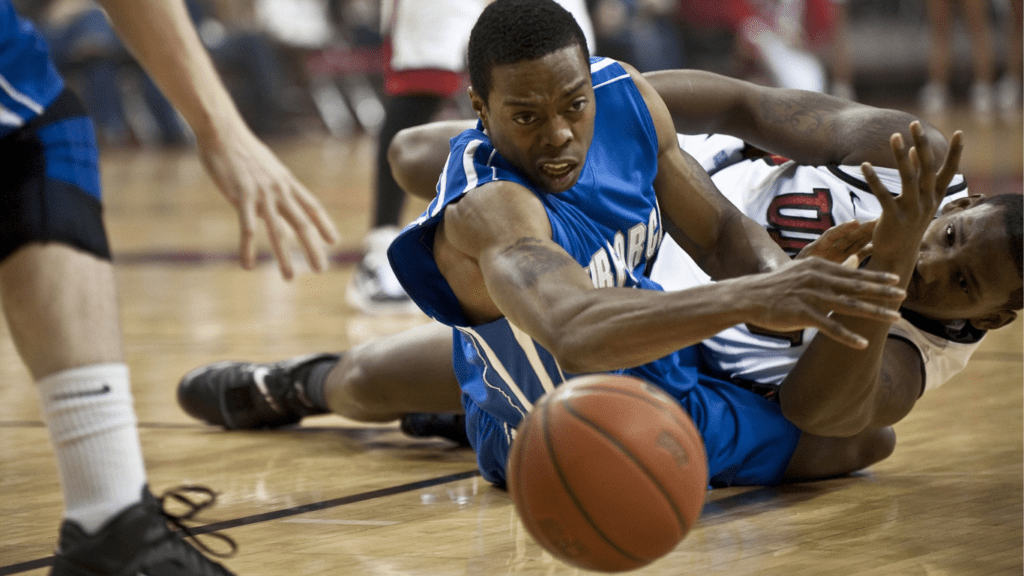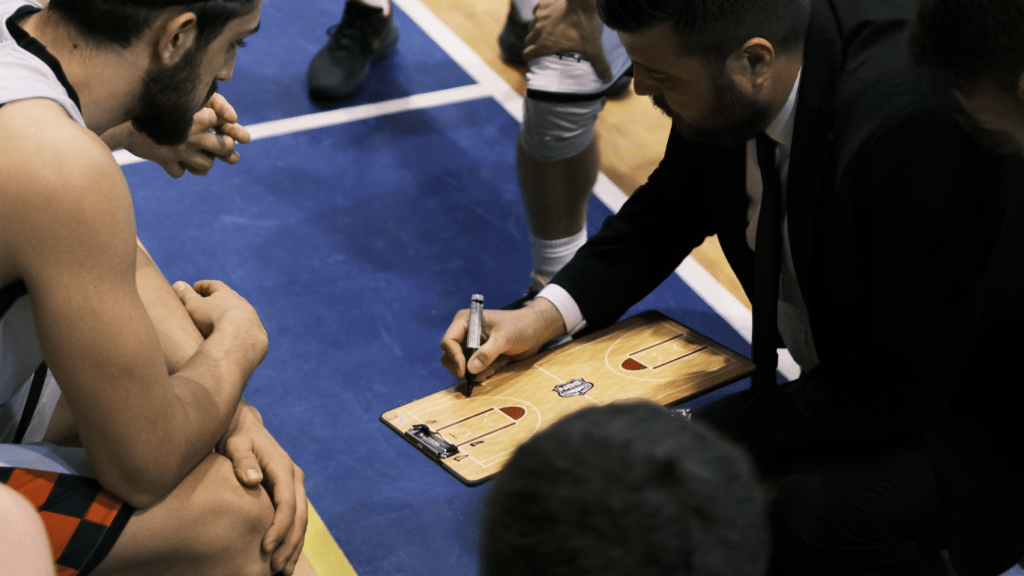Team Chemistry And Communication
Team chemistry and communication play a crucial role in the success of any sports team. Effective communication on and off the field fosters a strong bond among players, enhancing overall performance.
Importance Of Communication
Clear communication ensures players understand strategies, positions, and plays. Miscommunication, in contrast, can lead to errors and missed opportunities. For instance, a poorly communicated play can result in turnovers or missed shots.
Building Team Chemistry
Creating strong bonds among team members improves trust and collaboration. Activities like:
- team-building exercises
- social events
contribute to building this chemistry. A cohesive team works more efficiently and adapts better to challenges.
Role Of Leadership
Coaches and captains facilitate effective communication and team chemistry. They set the tone for the team’s culture and ensure every player feels included. Strong leadership fosters an environment where players communicate openly and honestly.
Tools For Enhancement
Various tools and techniques can improve communication and chemistry. Video analysis allows players to understand each other’s movements and intentions better. Regular team meetings provide a platform for discussing strategies and addressing any issues.
Real-World Examples
Top teams often exhibit excellent team chemistry and communication. The Golden State Warriors’ emphasis on passing and teamwork led them to multiple NBA championships. Similarly, Germany’s 2014 FIFA World Cup win showcased their players’ understanding and coordination on the field.
Leadership And Coaching
Successful sports teams often credit effective leadership and coaching for their achievements. Strong leadership sets the foundation for team culture and performance.
The Role Of A Coach
Coaches guide teams through strategic planning, skill development, and game tactics. They identify individual strengths and place players in positions where they excel. Experienced coaches also adapt strategies based on opponents, weather conditions, and player readiness. For instance, Pep Guardiola’s tailored approach has consistently led his soccer teams to success in various leagues.
Coaches also play a crucial role in managing the mental and emotional aspects of the game. They motivate players, cultivate resilience, and foster a positive mindset. By addressing both the physical and psychological aspects, coaches ensure that athletes are well-prepared for competition.
Importance Of Team Captains

Team captains act as liaisons between coaches and players. Captains provide on-field leadership by executing game plans and making quick decisions during play. In high-pressure moments, they maintain composure, which inspires confidence in teammates. For example, Tom Brady’s leadership on the football field has been pivotal in his teams’ numerous Super Bowl victories.
Captains also help maintain team morale. They address conflicts, support struggling teammates, and reinforce the team’s goals. This helps in creating a cohesive team environment, essential for navigating the ups and downs of a sports season.
Training And Preparation
Winning teams invest heavily in training and preparation. Both physical conditioning and mental toughness are critical components of a successful sports program.
Physical Conditioning
Physical conditioning builds the foundation for athletic performance. Structured training plans ensure athletes maintain peak fitness levels throughout the season. Regimens often include strength training, cardiovascular workouts, and flexibility exercises.
- Strength Training: Routines focus on building muscle power and endurance to optimize performance and prevent injuries. Players like Cristiano Ronaldo credit their success to rigorous strength training.
- Cardiovascular Workouts: Sessions improve overall stamina and maintain energy levels during long competitions. Examples include running, cycling, and swimming.
- Flexibility Exercises: Stretching and yoga enhance range of motion and reduce the risk of injuries. Teams like the Los Angeles Lakers incorporate yoga into their training programs.
Mental Toughness
Mental toughness enables athletes to perform under pressure. Training programs include psychological components to enhance focus, resilience, and stress management.
- Focus Training: Techniques like mindfulness and visualization help athletes maintain concentration during critical moments. Michael Phelps used visualization to anticipate race conditions.
- Resilience Building: Practices designed to build mental resilience, such as goal setting and stress inoculation, prepare athletes for adversity. The New England Patriots emphasize resilience in their training.
- Stress Management: Programs include breathing exercises and meditation to manage the psychological toll of high-stress situations. Serena Williams employs meditation as part of her routine.
Effective training and preparation in both physical and mental aspects establish a well-rounded athlete, ultimately contributing to the overall success of the team.
Game Strategy And Tactics
Effective game strategy and tactics differentiate winning teams from the competition. By mastering offensive and defensive strategies, teams maximize their chances of victory.
Offensive Strategies
Successful teams capitalize on their strengths and exploit opponents’ weaknesses. For example, they use well-coordinated plays like pick-and-roll or counter-attacks to create scoring opportunities. Having versatile players, such as LeBron James or Lionel Messi, allows teams to adapt to different defensive setups.
Ball movement is crucial for effective offense. Teams like the San Antonio Spurs exemplify this by prioritizing quick passes, ensuring every player gets involved. This keeps the defense guessing and opens up better shot opportunities.
Having a solid game plan for special situations like set-pieces in soccer or inbounds plays in basketball is vital. Teams meticulously practice these scenarios to ensure they can execute flawlessly when it matters most.
Defensive Strategies
Top teams excel in limiting opponents’ scoring opportunities. They employ a mix of man-to-man and zone defenses to disrupt the opposition’s rhythm. For instance, the 2008 Boston Celtics showcased an exceptional ability to switch between these defensive schemes, confusing their opponents.
Communication is key in defense. A single lapse can result in an easy score for the opposition. Teams with strong defensive communication, like the 2015 Denver Broncos, maintain high levels of alertness and coordination.
Understanding opponents’ tendencies is crucial. Effective teams study hours of game footage to anticipate and counter the moves of key players. This level of preparation helps in neutralizing threats and forcing the other team into making mistakes.
In this section, the focus is on game strategy and tactics, emphasizing the importance of both offensive and defensive approaches. The content is designed to offer a comprehensive understanding of how these strategies contribute to a team’s overall success.
Adaptability And Flexibility
Winning sports teams excel through adaptability and flexibility, adjusting strategies based on changing game scenarios. They recognize that rigid plans can’t account for every possible situation. For instance, successful teams continuously monitor their performance and opponents’, making real-time tactical adjustments.
Adaptable teams benefit from versatile players who can perform in multiple positions, addressing unexpected challenges. For example, athletes like Draymond Green of the Golden State Warriors showcase positional flexibility, effectively playing both forward and center roles depending on the team’s needs.
Flexibility also extends to mental preparedness. Athletes practice mindfulness and stress management to stay calm under pressure. Teams that prioritize mental flexibility can pivot their strategies without losing focus, which is critical in high-stakes games. For instance, the New England Patriots’ comeback in Super Bowl LI exemplifies mental resilience and strategic adjustments.
Lastly, coaches and leaders play a significant role in fostering adaptability and flexibility. They encourage a growth mindset and emphasize the importance of learning from each game. Coaches, like Bill Belichick, are known for their ability to make mid-game alterations, leading to sustained success.
In essence, adaptability and flexibility empower teams to overcome obstacles, optimize their performance, and achieve consistent success.


 Michaello Thomasters, the visionary founder of Bet Roll Gamble, has built a dynamic platform that serves as a hub for betting enthusiasts across various arenas, including sports, poker, horse racing, and esports. With a passion for providing valuable insights and strategies, Thomasters aimed to create a space where both novice and experienced bettors can enhance their skills and stay ahead of trends.
Michaello Thomasters, the visionary founder of Bet Roll Gamble, has built a dynamic platform that serves as a hub for betting enthusiasts across various arenas, including sports, poker, horse racing, and esports. With a passion for providing valuable insights and strategies, Thomasters aimed to create a space where both novice and experienced bettors can enhance their skills and stay ahead of trends.